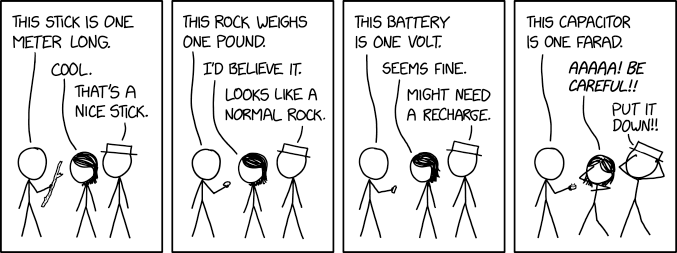this post was submitted on 25 Jun 2025
463 points (97.7% liked)
xkcd
11787 readers
1276 users here now
A community for a webcomic of romance, sarcasm, math, and language.
founded 2 years ago
MODERATORS
you are viewing a single comment's thread
view the rest of the comments
view the rest of the comments

That's similar to saying "Auf Wiedersehen" translated to English is "until I see you again", therefore "Auf Wiedersehen" is technically English. Just because there's a recognised translation to a thing, that doesn't make it that thing.
It's not a recognised translation- it's the definition.
If we're going to split hairs then while it's defined in terms of metric units, it doesn't scale with prefixes and factors of 10, so it can't be an S.I. unit.
You're right, the imperial units are not S.I. units, but each (most?) imperial unit is defined by an S.I. unit.
The other way around maybe, that is, an English word becoming technically foreign because we decide that we are going to write its definition in a different language in the dictionary.
It wouldn't make sense to do that though, which kind of breaks the analogy. Unless you count words borrowed wholesale because we didn't have that word, and those definitions were written in a foreign language first.
As it is "one pound" now translates exactly to "nought point four five three five nine two three seven kilograms" where it didn't before 1959. "kilogram" is one of those foreign borrowings.